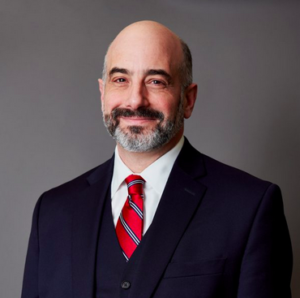By Doron Krakow

It didn’t take long. I was back in Israel for perhaps 45 minutes when, during the drive from the airport to Tel Aviv, Janet, my wife, and I were jarred by the blare of the Tzeva Adom, the Red Alert siren, several of them, in fact. We pulled over to the side of the highway and, rushing from the car, took cover with several other drivers behind a concrete barrier beneath an overpass. A minute or so later, the “boom” of the Iron Dome intercepted the inbound missile. We waited the required ten minutes and resumed our drive. Welcome back to Israel—a country at war.
I returned to New York and to the JCCs of North America, immersed in solidarity efforts—solidarity with Israel, of course, and solidarity within. An evolving partnership with Israel’s Ministry for Diaspora Affairs and Combating Antisemitism gave rise to the launch of two extraordinary efforts. The first, Giborim | Heroes, brought delegations of Israeli eyewitnesses to the slaughter of October 7 to JCC communities from coast to coast. From Pittsburgh to Fort Lauderdale, Los Angeles to New York, they described what they’d seen and experienced and inspired thousands with their fortitude and resilience. Ordinary Israelis who lost friends and family, who bear the burdens of displacement, and who live with the heartbreak over those still in captivity. They also represent the undying determination of Israel to restore its security, to return to their homes, and to renew their communities, making them stronger than before.
They shared their stories with local Jewish communities. They shared them with the media. They shared them with political figures—city council members, mayors, congresspeople, and governors. These are the first such delegations to arrive, the start of a dedicated, ongoing effort by JCCs of every shape and size to leverage the Jewish community’s town square and strengthen the ties that bind us together across the Jewish world.
Even as our Giborim were touring 20 JCC communities, others were marking the first of our “Together We Shine Bright” solidarity Shabbatot. Already, more than 100 JCCs have joined the effort, with 30 hosting events this past Shabbat. Dozens more will join them in the next round on January 26–28, 2024. Tens of thousands of North American Jews and countless others from the broader communities are coming together to stand with Israel and draw strength from one another.
Jewish leaders who had only recently breathed a sigh of relief as COVID faded into the background now find themselves confronted anew with the stresses and strains of leadership in complicated times. Financial pressures borne not only by the rising cost of security but also, owing to this “awakening” and the arrival of growing numbers of Israeli families seeking refuge from the war. There is a need to expand critical JCC programs in the near term, even as many local Jewish communities are under increasing duress. In contrast to crises past, the questions at issue are not only about matters of immediacy. They are also bringing to the surface critical deliberations about the direction of our work and the need for greater intentionality around Jewish outcomes and Jewish peoplehood. Our part in strengthening the Jewish community and the fabric of Jewish peoplehood.
What may have been most compelling about these leadership gatherings was the absence of definitive conclusions. However desirable quick fixes and immediate answers to major challenges can be, they are, more often than not, illusions. The emerging challenges to Jewish life and Jewish community don’t lend themselves to easy solutions. Rather, they compel us to wrestle with them and with one another as we struggle to determine the right course. There is little doubt that the steps we take right away matter. They matter a great deal. Events such as Giborim and “Together We Shine Bright” matter. The embrace of ex-patriot Israelis in our communities matters. And it matters to those whose newfound sense of connection and community has resulted in unprecedented interest and demand from those we believed to have been beyond the Jewish community circle.
But more than immediate action is required. We need a vision for the future of the North American Jewish community, and the evolution of that vision will require a great deal of deliberation, dialog, and debate. It will require us to come together again and again and to wrestle with ideas, with new and changing concepts, with attitudes, all in the midst of still-shifting circumstances.
Therein lay the power and importance of these recent gatherings, which will be the inspiration for gatherings to come, movement-wide gatherings of our top executives (at JCCs of North America Mifgash: Executive Leadership Forum) and our foremost lay leaders (JCCs of North America JSummit 2024), gatherings of our staff (JCCs of North America ProCon). Gatherings—within JCCs and across Jewish communities. It is in the commitment to gather and to wrestle together when we do, working towards an ever more thoughtful, more meaningful vision of what we can be as a movement and a North American Jewish community, that we find our strength and fortitude.
We draw inspiration from adversity, a commitment to something better for all of us.
Cochenu b’Achduteynu | כוחנו באחדותנו | Our strength comes from our unity.
Shabbat shalom | שבת שלום
*
Doron Krakow is President and CEO of the JCC Association of North America